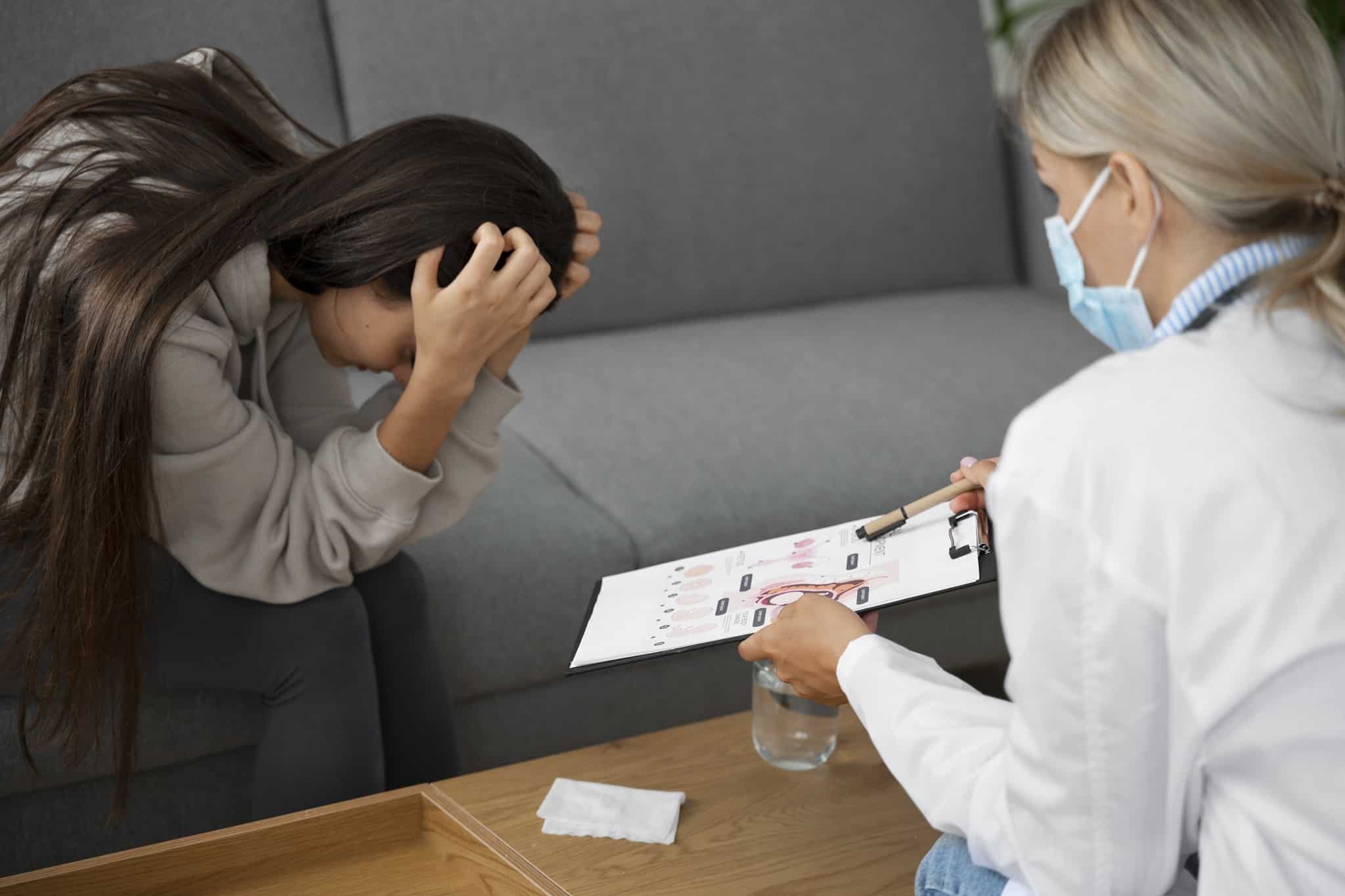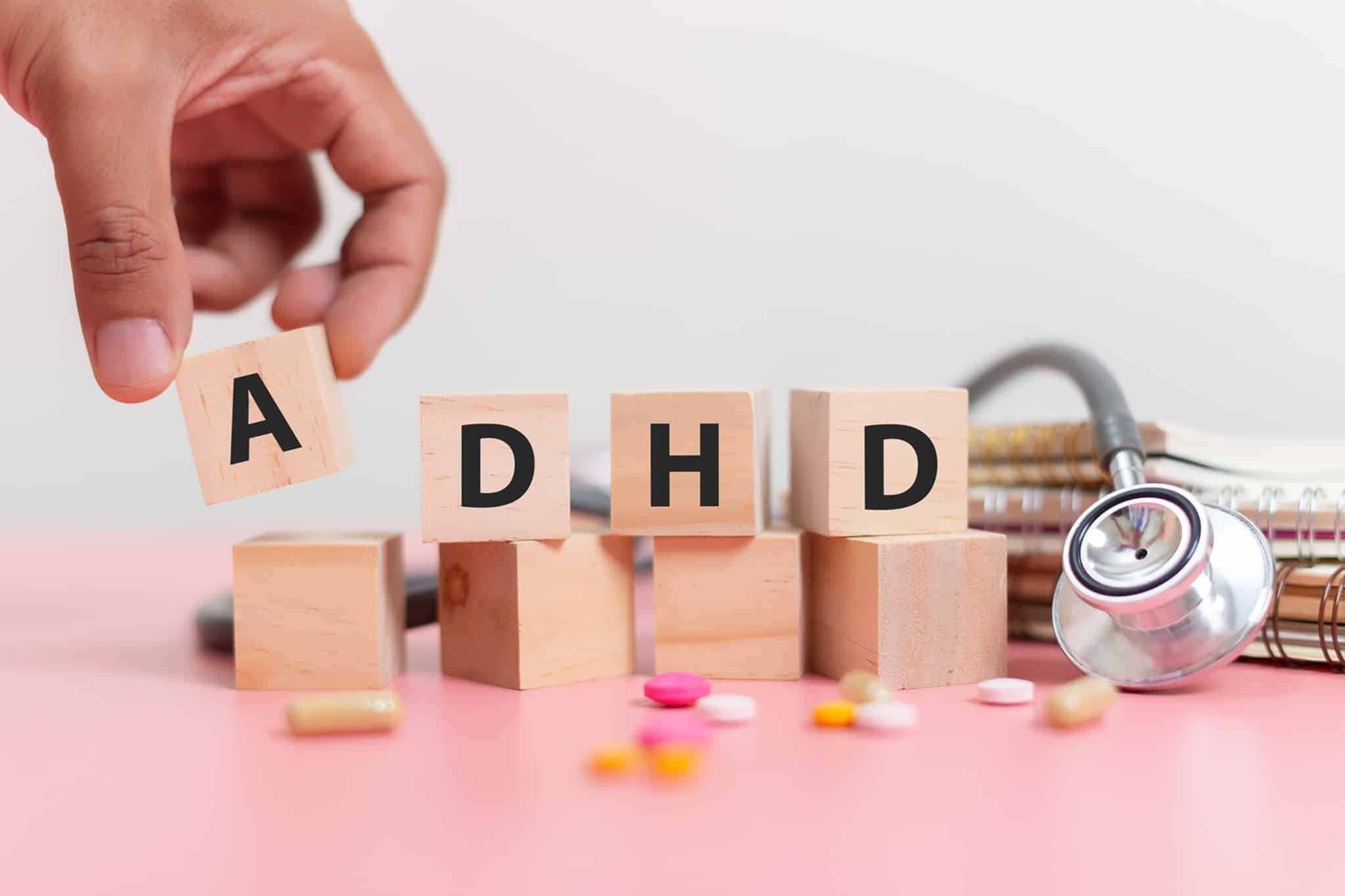Anxiety can manifest in different ways and for different people, with some experiencing constant worry, while people who may only face sudden panic attacks or deep social anxiety. The real issue is that there is no accurate “one size fits all” psychiatric therapy for anxiety. Each form of anxiety disorder responds differently to treatments and that’s why psychiatric treatment needs to be individualized.
Anxiety is confusing because as a compassionate psychiatrist Arroyo Grande sees anxiety is at work in every patient at a different intensity, frequency, and in different situations. This is why anxiety treatment needs to be individualized treatment—a way to find balance and peace in how you live with anxiety.
Understanding Explaining Symptoms as More than Feelings
Anxiety is more than a mental state; anxiety is a truly a bodily experience. It affects how you think, sleep, breath, it affects how your heart beats. Many times, anxiety takes form because of an imbalance in neurotransmitters such as serotonin or because of a medical condition, drug and or alcohol use, or prolonged stress.
There are various anxiety disorders, such as generalized anxiety disorder, panic disorder, social phobia, and post-traumatic stress disorder. Each one has its own issues and symptoms, and this is why treatment will vary from one person to another.
The Role of a Psychiatrist in Personalizing Anxiety Treatment
A licensed psychiatrist does not merely prescribe meds; they care about your story. If you’re looking for anxiety psychiatrists near me, you want someone to listen to your report, evaluate you, and create a treatment plan that reflects your emotional and physical needs.
At a mental health clinic in Arroyo Grande, a psychiatrist closely reviews your symptoms, your daily patterns, and your background. The psychiatrist’s goal is not just to calm your anxiety but also to help you regain control, rebuild your confidence and reconnect what is important in life.
Psychiatric Treatment for Different Types of Anxiety Disorders
Generalized Anxiety Disorder
Is this the most common type of anxiety? People with generalized anxiety disorder feel an undercurrent of worry CONSTANTLY – even when there is probably no reason to be on-going, and even when that is not what they came in for. Psychiatric treatment can also include medication that seeks to balance serotonin levels, and medication that calms the focus.
Other potentially beneficial treatment options could include beta blockers for physical symptoms such as rapid heart rate and tension. The ultimate focus is to help the patient feel safe and steady for as long as possible. The psychiatrist also wants to monitor the patient for side effects and make shifts when necessary.
Panic Disorder
Those experiencing panic attacks often feel overwhelmed, like they cannot catch their breath or their heart will stop. For patients struggling with panic attacks due to an anxiety disorder, psychiatrist Arroyo Grande will develop a treatment approach that likely will include a medication effective for short term control of panic attacks, as well as a medication for long-term stabilization to help prevent attacks altogether.
Effectively addressing anxiety does not only mean stopping the panic attack—more importantly, it means learning to manage the fear of a panic attack or anxiety symptoms observable in public. Psychiatrist Arroyo Grande may also evaluate for other related mental health conditions such as anxiety or depression, which often occurs simultaneously.
Each encounter with the psychiatrist is also an opportunity to learn-more, to refine treatment so that progress feels ongoing and agency feels supported (i.e. “I had a panic attack today and it was not the end of my ability to manage life”).
Social Phobia (Social Anxiety Disorder)
Social Phobia is more than just the classic sign of shyness. Social phobia instills a fear of saying the wrong thing, being judged by others, feeling embarrassed, or rejection. For patients experiencing social phobia, psychiatric treatment for anxiety focuses on restoring balance to the brain, as well as treating the entrained physiological symptoms that can occure in anticipation of, or while interacting with other individuals in public, or group settings.
Medications, such as beta-blockers, for example, can limit shaky hands or palpitations allowing a both a participating individual or a observer to feel more at ease to participate in conversation or being in a public space altogether. With the help of a caring psychiatrist, these individuals can gradually discover a restored sense of social confidence and connection.
Panic and Trauma-Related Anxiety
Certain individuals may develop anxiety after trauma or sustained stress. Experiences of panic and trauma-driven anxiety can feel random, leading to an inability to be at ease with one’s body.
Treatments in psychiatry here commonly include medications targeting anxiety and depression. The meds can aim to modulate serotonin and other chemicals in the brain that influence mood and alertness. A mental health clinic in Arroyo Grande provides guidance and monitoring so medications allowable over time can be provided effectively and safely.
Emphasizing Medication Use as Part of the Treatment for Anxiety
Medication is often part of a larger treatment program. Psychiatrists may prescribe an antidepressant, beta-Blocker, or anti-anxiety medication that can help. Some meds work better for short-term use, and other medications are for longer-term stability.
For every prescription, there is careful consideration of side effects, medical history, and comfort. A psychiatrist Arroyo Grande assists in helping patients understand the mechanics of how each medication works, its recommendation, and results.
These dynamic builds trust and allows patients to be enlightened participants in their mental health process.
Why Personalized Anxiety Treatment Makes a Difference
When you search for an anxiety psychiatrist nearby, what you are looking for is someone who recognizes you as more than your diagnosis. Customized psychiatric treatment occurs when every decision is based on your life— your daily routine, your relationships with others, and your comfort.
In a mental health clinic near me, this method of treatment contributes to your better outcome because treatment changes as your needs change. It’s about making space for healing, understanding setbacks and celebrating improvements— no matter how small.
Everyone deserves treatment that meets them at their current place, and not at the place they “should” be.
Opening Up Your Initiatives Toward Mental Health
Living with anxiety, does not mean living in fear. Psychiatric treatment helps to take back control of anxiety through understanding triggers and creating structure in the healing process. When you engage with a psychiatrist Arroyo Grande you will learn anxiety management is not about being perfect, it’s about being better.
Setting boundaries, checking in with your psychiatrist, and maintaining healthy sleeping habits helps your recovery process. Each small positive change that you make reinforces your mind-body connection and lessens stress.
Remember this: anxiety is not a weakness but a cue that your mind and body are trying to tell you something.
Conclusion: How MindVibe Makes a Difference
MindVibe understands that your mental health journey is unique to you. Our team of psychiatrists and behavioral health professionals will provide individualized and compassionate anxiety treatment each step of the way. Together, we’ll help you understand your diagnosis, navigate safe and appropriate treatment modalities, and re-establish balance through informed and ongoing care.
MindVibe isn’t just a mental health clinic in Arroyo Grande, but a place where healing, trust, and hope can grow together. You deserve to feel calm, capable, and connected again, and we are here to walk that journey with you.
FAQS
What types of anxiety disorders require different psychiatric treatments?
Anxiety can take many forms, including generalized anxiety disorder, panic disorder, social anxiety disorder, and trauma-related anxiety. Each type has unique symptoms and may respond differently to therapy, medications, or combined approaches. Personalized treatment ensures the best outcomes for each individual.
How does a psychiatrist personalize anxiety treatment?
A psychiatrist reviews your symptoms, daily routines, medical history, and emotional patterns. They create a customized plan that may include therapy, medications, lifestyle strategies, and coping techniques tailored to your specific diagnosis and needs.
Are medications always necessary for anxiety treatment?
Not always, but medications can play a vital role in managing anxiety. Psychiatrists may prescribe antidepressants, anti-anxiety medications, or beta-blockers depending on the type and severity of anxiety. Medications are combined with therapy and coping strategies for a holistic approach.
Can psychiatric treatment help with panic attacks and trauma-related anxiety?
Yes. Psychiatric treatment targets both the physical and emotional aspects of panic and trauma-driven anxiety. A psychiatrist can provide medications for symptom relief, therapeutic techniques for coping, and guidance to regain control over daily life.
How long does it take to see improvements with individualized anxiety treatment?
The timeline varies depending on the type of anxiety, chosen treatment, and personal factors. Some individuals notice relief in weeks, while others benefit gradually over months. Continuous monitoring and adjustments by a psychiatrist ensure ongoing improvement and long-term emotional balance.






